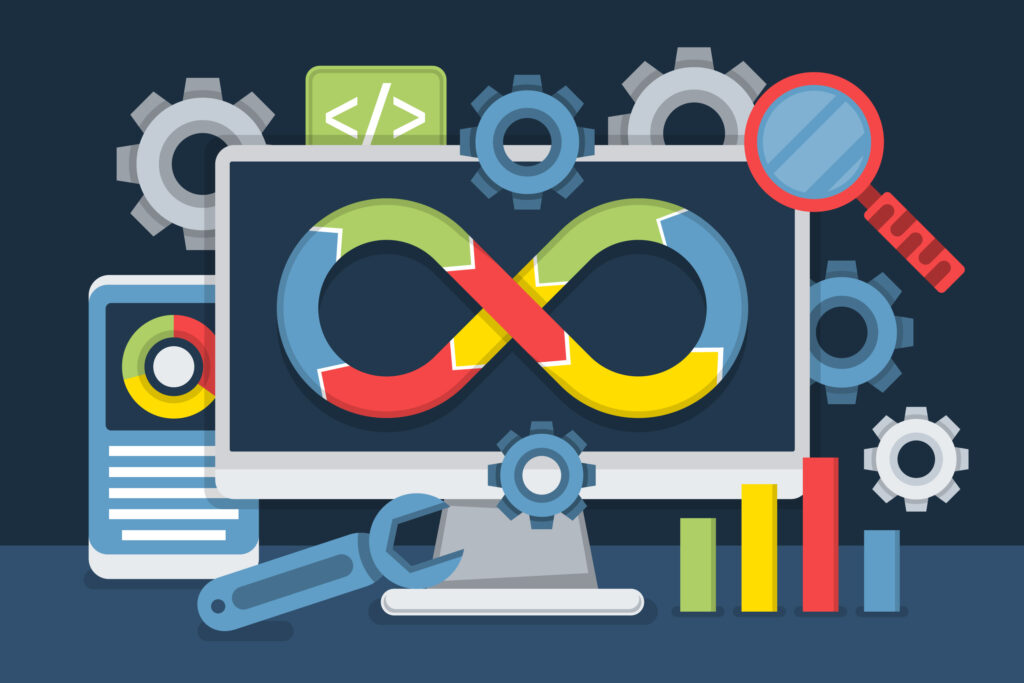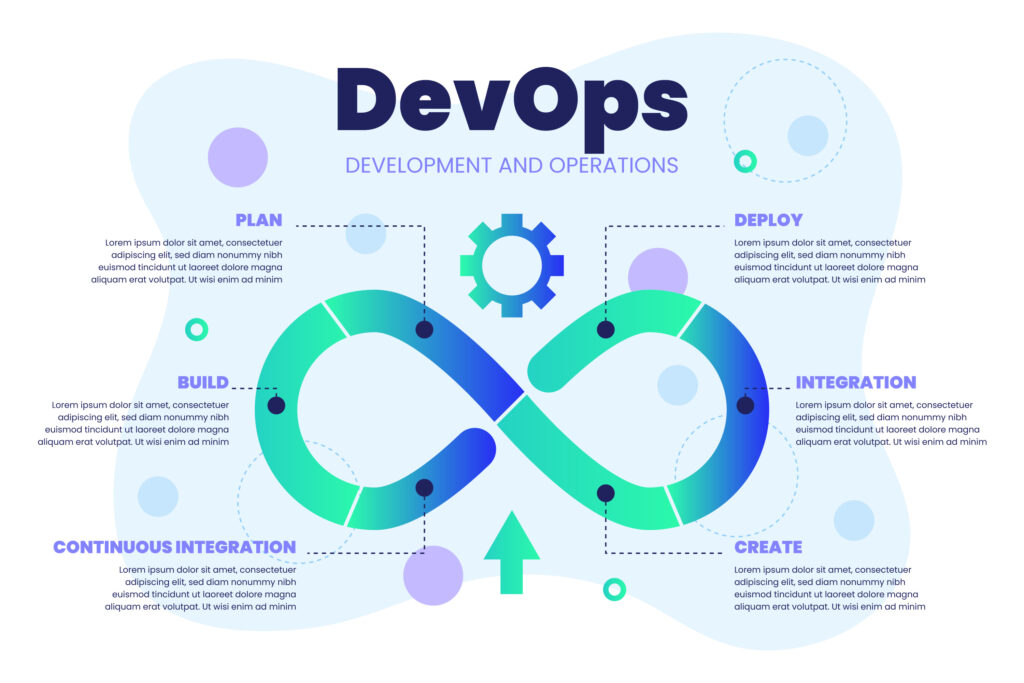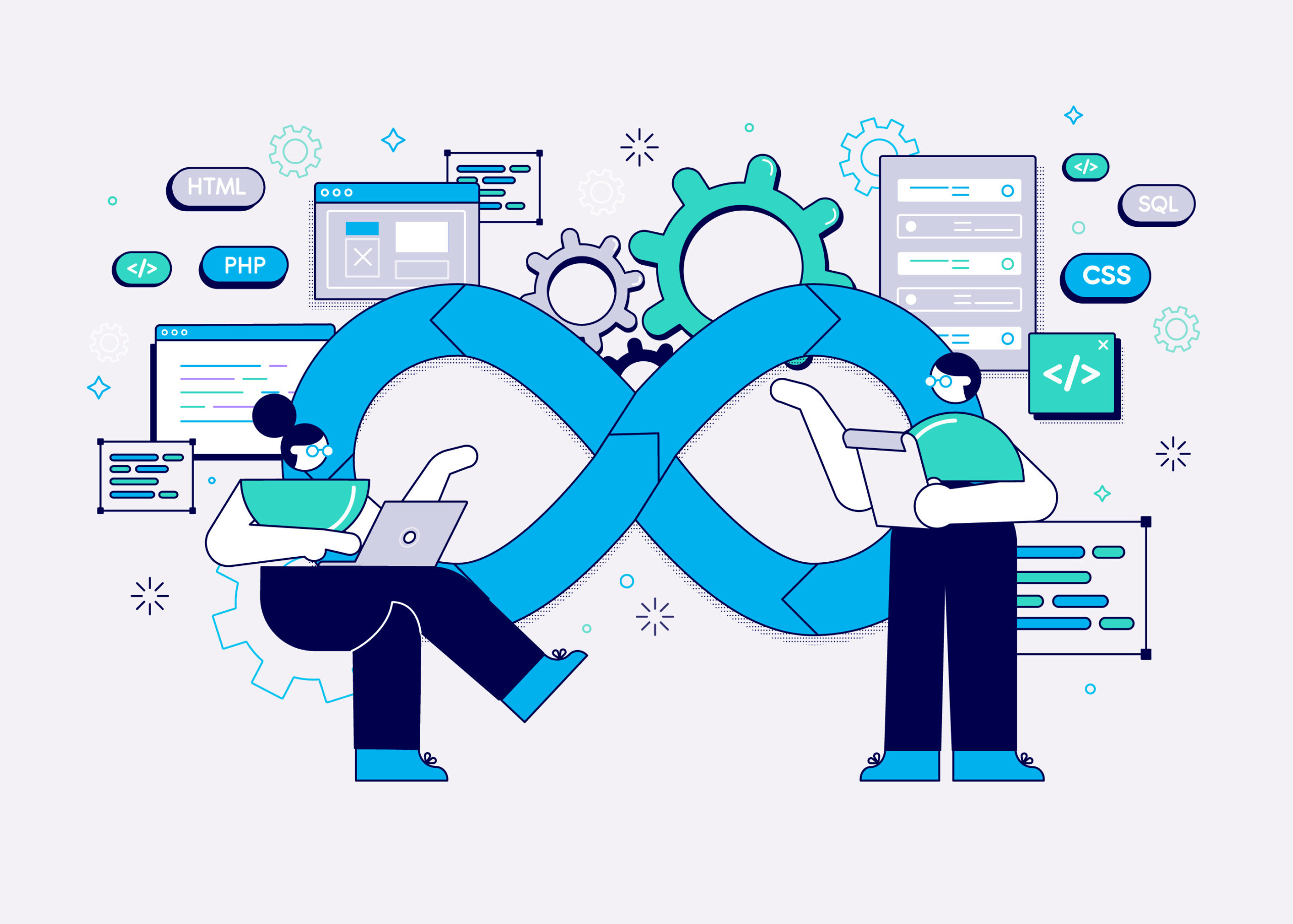Is DevOps Need Coding? As organizations embrace DevOps to accelerate delivery and improve reliability, a common question arises – do you need to know coding to implement DevOps?
While automation and infrastructure as code underpin many DevOps practices, coding alone is not enough. A collaborative mindset, end-to-end process view, and focus on business outcomes are equally, if not more, critical.
In this comprehensive guide, we’ll examine the diverse range of roles and skills that bring DevOps success. You’ll understand:
- Key responsibilities across developers, operations, QA, and architecture
- Where coding provides leverage like infrastructure provisioning and CI/CD
- How soft skills enable alignment, shared ownership, and continuous improvement
You’ll learn that both technical and non-technical capabilities are integral for unlocking DevOps value. An elite developer alone cannot drive transformation without empathetic collaboration across teams. Strike the right balance of coding and soft skills to accelerate delivery from end to end. Let’s get started!
Understanding DevOps Culture and Practices
To understand if coding is mandatory for DevOps, it helps to first examine core DevOps culture and practices.
At its heart, DevOps aims to break down longstanding silos between development and operations teams. It brings these historically disconnected groups together to collaborate, share ownership, and align around delivering customer value.
Practices like Continuous Integration (CI), Continuous Delivery (CD), and automation form the technical foundations of DevOps. Coding facilitates automating infrastructure provisioning, deployment pipelines, and other processes.
However, automation alone cannot transform mindsets and culture. Strong communication, transparency, empathy, and a customer-centric view are equally critical. Collaboration skills help teams continuously improve and adapt together.
In summary, DevOps relies on both technical capabilities like coding as well as “soft skills” around relationships, culture, and end-to-end thinking. Keeping the focus on customers rather than technical complexity or team boundaries is key. Coding plays an important role but other skills make DevOps truly effective.
Key Roles in a DevOps Team

Developers – Write code for applications, infra, pipelines
Developers write application code and contribute to infrastructure as code for provisioning, configuration management, and CI/CD pipelines. Fluency in languages like JavaScript, Python, Go, and frameworks like React helps. Coding skills to build deployment automation and observability are important.
Operations – Maintain and monitor infrastructure
Operations engineers maintain and monitor infrastructure like servers, networks, databases. They manage production environments, respond to incidents, and implement security controls. Scripting abilities to automate infrastructure help although primary skills are sysadmin oriented.
QA – Test applications and write test automation
QA engineers develop and execute test cases to validate app functionality, UX, performance etc. Test automation skills like Selenium and writing scripts to simulate user workflows is crucial. They provide feedback to developers on defects.
Product Owners – Drive requirements and priorities
Product owners guide requirements and prioritization to ensure work aligns to customer needs. They serve as the voice of the customer. Technical skills are less critical than business analysis, user empathy, and roadmapping abilities.
Architects – Design overall system architecture
Architects design overall system architecture encompassing apps, data, infrastructure, CI/CD pipelines, and more. Strong technical breadth to evaluate tradeoffs and patterns for security, scalability, reliability is crucial.
In summary, DevOps requires a diverse blend of both coding and non-coding skills. Coding accelerates delivery but collaboration and business focus enable customer impact.
Where Coding Helps in DevOps

Coding skills allow DevOps teams to automate manual, repetitive processes which is key for improving velocity and reliability. Where does coding provide particular value?
Infrastructure as Code – Provisioning cloud infrastructure
Provisioning cloud infra rather than manually clicking through UIs is faster and consistent through Infrastructure as Code tools like Terraform, CloudFormation, Pulumi.
CI/CD Pipelines – Automating deployments and releases
Automating build, test, and deployment steps via pipelines requires coding skills like Jenkinsfile, GitHub Actions workflow YAML.
Writing automation scripts – Automating repetitive tasks
Scripting common tasks like database migrations, data imports, report generation reduces human errors. Python, Bash, PowerShell all help.
Telemetry and monitoring – Instrumenting apps for observability
Instrumenting apps to emit logs, metrics, and traces enables observability. Languages have libraries like OpenTelemetry to simplify this.
Containerization – Docker, Kubernetes configuration
Configuring Dockerfiles for container builds plus Kubernetes manifests for deployment requires YAML/JSON skills.
While beneficial across DevOps, relying on coding alone without collaboration will hinder outcomes. Review where coding aids automation while balancing with other capabilities.
Non-coding skills needed in DevOps
Is DevOps Need Coding? Beyond coding, teams require several fundamental non-technical skills:
Communication and Collaboration Open communication, transparency, and tight collaboration between teams is crucial for DevOps to break down organizational silos. Empathy, active listening, and relationship building enable shared success.
End-to-End Mindset Team members should seek to understand upstream and downstream dependencies, constraints, and goals across the entire value stream from code to customer. This end-to-end perspective drives alignment.
Continuous Learning
Given the rapid pace of change in technology, the ability to continuously learn new languages, frameworks, infrastructure, and absorb new approaches is required. Curiosity and humility help growth.
Customer-Centricity Connecting all activities – coding, documentation, testing – back to real customer needs and outcomes maintains the right focus. This avoids losing sight of the big picture.
In summary, coding accelerates DevOps but is only one capability. Blend technical excellence with collaborative behaviors and business alignment for transformational outcomes.
Wrapping up on “Is DevOps Need Coding?”
Is DevOps Need Coding? In closing, while coding unlocks automation and efficiencies, it is just one piece of the overall skillset required for successful DevOps adoption.
DevOps demands a balanced blend of both technical excellence as well as cultural attributes like collaboration, empathy, and customer-centricity. Coding accelerates delivery but robust communications and an end-to-end mindset enable continuous improvement and shared ownership.
Organizations should nurture a diverse range of capabilities from infrastructure-as-code to test automation to relationship building. Avoid over-indexing on any single skill like coding, as diversity of strengths fosters adaptability.
With the right mix of coding skills and “people skills”, teams unlock velocity and reliability while remaining aligned to business outcomes. Assemble a well-rounded team combining technical and non-technical backgrounds. Focus efforts on adding value for customers rather than just technical sophistication.
Strike this balance, and you gain both the automation of DevOps as well as the human dynamics that enable lasting culture transformation.
External links

